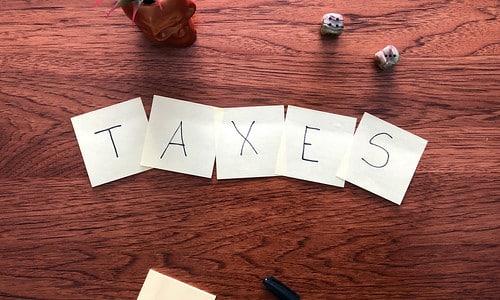On Thursday 17 March, the House of Representatives will host the committee debate on taxation place. Many of us already feel the eyelids getting heavier on hearing the word 'taxes' and that is very understandable. However, those who look into it will realise that it is an eternal sin to ignore this topic. Indeed, the revision of the international tax system is on the agenda, something that affects almost every country in the world. But these implications are not the same for every country.
Tax avoidance has increasingly been on the international public and political agenda since the financial crisis. The consequences of tax avoidance for developing countries, which lose billions in tax revenue every year due to the policies of countries like the Netherlands, have also become increasingly clear. As a result of these developments, the OECD, an alliance of the world's most developed economies, started the BEPS project. Its goal of curbing tax avoidance by multinationals is now being pursued by 141 countries within the so-called OECD/G20 Inclusive Framework on BEPS (IF). In this partnership, on 1 July 2021, the 'deal of the century' concluded to which as many as 136 countries have signed up.
What does this historic agreement entail?
In 2020, the IF decided to focus more on the challenges posed by the digital economy, also known as BEPS 2.0. BEPS 2.0 consists of two pillars, which also form the basis of the current agreement. The first pillar focuses on regulating the distribution of profits and taxing rights between countries. This makes it possible to levy profit tax as soon as a multinational has customers or users in a particular country, even if the company does not have a physical presence there. However, most media attention has focused on pillar two, in which a global minimum profit tax rate of 15 per cent for multinationals has been agreed.
If we have the Ministry of Finance notice are to be believed, it is time to raise glasses and congratulate each other on a "unique and historic" agreement on "an international tax system fit for the 21st century". While the agreement can certainly be called historic, this jubilation also raises questions: if we are already raising glasses, with whom are we actually toasting?
Africa does not toast
From developing countries, especially within Africa, the agreement has been widely criticised. After all, the G20 and especially the OECD are alliances of developed economies. It is therefore downright striking that these are the institutions that are given responsibility over revising the international tax system. It is like letting tobacco companies decide on new excise taxes and expecting them to take fair account of the harmful effects of smoking in this. So with this agreement, the cry of several developing countries to place the responsibility on the United Nations, rather than the OECD or the G20, is once again sadly ignored.
The lack of involvement of African countries in the creation of the plans is therefore reflected. For instance, most African countries have profit taxes of between 25 and 35 per cent. With this in mind, The African Tax Administration Forum asked the OECD in 2020 warned:
"If the minimum effective rate is substantially below these rates, we consider it unlikely to lead to a change in taxpayer behaviour in respect of such profit shifting."
In short, a global minimum rate of 15 per cent still gives multinationals plenty of reason to keep their profits out of Africa lock away.
On top of that, enforcement of this 15 per cent is done through the so-called Income Inclusion Rule. As a result, the right to levy the tax shortfall still lies primarily with the country in which the headquarters of the multinational is located. It should come as no surprise that these headquarters are mainly located in the richer OECD countries.
Attention to position of developing countries
The limited benefits for African countries are particularly poignant when one considers that these countries are relatively more dependent on profit taxes than more developed countries. For instance, African countries rely on profit tax for an average of about 20 per cent of their tax revenues, while in OECD countries this is on average under 10 per cent lies. Moreover, increasing tax revenues for developing countries would an important step could be to reduce dependence on development cooperation to finance public services, such as health and education, for example.
So a clear message to members of parliament: speak out at an early stage of policy-making about the possible negative consequences for developing countries, because if they do this themselves, they hardly ever listen! So for now, we'll leave the glasses as well.
Update - 30-03-2022
We are now two weeks on. The agreement has now been signed by 137 countries and, of course, the committee debate is behind us. Those who followed the debate specifically for this topic had to be very patient. Unfortunately, due to the large number of topics on the agenda, this agreement was hardly discussed.
Yet that patience eventually paid off when Tom van der Lee (GroenLinks) pointed out to the state secretary that this agreement could have a negative impact on developing countries. Van der Lee eventually asked whether the Netherlands would make a case for involving developing countries in future negotiations, for instance in a UN context. The State Secretary's answer that developing countries do have a seat at the table in the Inclusive Framework is frustrating. Indeed, this answer is factually correct, but does not tell the whole truth. The review of the international tax system was initiated by the OECD and the G20. Other countries, including developing countries, only joined at a later stage of the negotiations on conditionally involved. This will have to be recognised, because until it is, little will change.
Image: GotCredit




